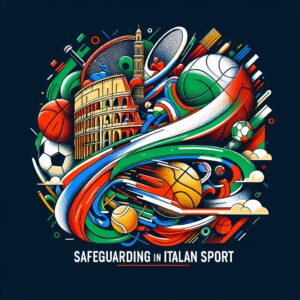SAFEGUARDING IN ITALIAN SPORT

Sadly, more and more cases of abuse of young persons and vulnerable adults participating in a range of sports are being reported.
This phenomenon has become of increasing importance, particularly with the rise in women’s participation in sport, not least in football.
Many international and national sports governing bodies have introduced safeguarding measures to protect young and vulnerable sportspersons from abuse and harm, including training courses.
It should be noted that safeguarding is a proactive process, with the aim of preventing abuse and harm and providing a safe environment in which sports persons, especially young persons, may practise their sports, whereas child protection is reactive, taking measures after abuse has taken place.
Regarding training courses, at the international level, for example, the International Olympic Committee (IOC) has introduced the IOC Certificate: Safeguarding Officer in Sport, described as a Key Role in Modern Sports. For more information about this important qualification, log onto: sportsoracle.com/course/ioc-certificate-safeguarding-officer-in-sport/.
At the national level, for example, the Italian Football Federation (Federazione Italiana Giuoco Calcio) is offering to regional delegates training courses in Italian on child safeguarding. These courses are held online on the special UEFA child safeguarding platform (uefa-safeguarding.eu) and provide guidance on how to identify signs of discomfort, manage inappropriate behaviour and report cases of abuse.
Many other sports in Italy, particularly those in which safeguarding issues involving coaches and trainers have been reported, have introduced their own safeguarding policies and measures. These include Gymnastics, where safeguarding is handled through the dedicated Safeguarding Office of the National Federation (Federazione Ginnastica D’Italia), and Swimming, whose National Federation (Federazione Italiana Nuoto) offers online training on safeguarding.
For more information and advice on safeguarding in Italian Sport, email Sara Botti, Head of our Italian Group Practice, on ‘botti@valloni.ch’.